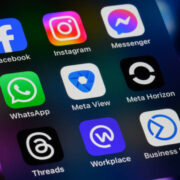TikTok has expanded its global Mental Health Education Fund to Sub-Saharan Africa for the first time, with three organisations from South Africa, Nigeria, and Kenya set to benefit from funding and in-app support.
The short-form video platform made the announcement at its inaugural Digital Well-being Summit in Johannesburg, South Africa, where it confirmed that the South African Depression and Anxiety Group, the Mentally Aware Nigeria Initiative, and Kenya’s Mental360 will be the first recipients under the $2.3 million fund.
“This marks a significant milestone in our ongoing efforts to promote mental wellness, especially among Africa’s young, digitally engaged population,” said Valiant Richey, TikTok’s global head of trust and safety outreach and partnerships.
By Ruvarashe Gora
Launched in 2023, TikTok’s Mental Health Education Fund aims to empower organisations to produce engaging, accurate, and supportive mental health resources tailored for digital audiences. The expansion to Africa reflects rising concerns about the impact of social media on youth mental well-being, especially in fast-growing online communities.
In addition, TikTok announced plans to roll out in-app hotline resources across select African countries. These hotlines will offer expert support to users who report content related to suicide, self-harm, bullying, hate speech or harassment building on similar features already deployed in Europe.
The platform also introduced its first cohort of Mental Health Ambassadors from Africa in partnership with the World Health Organization. The group includes verified healthcare professionals like Sanam Naran and Doctor Siya from South Africa, Dr Claire Kinuthia from Kenya, and Doctor Wales from Nigeria.
South Africa’s Minister of Basic Education, Siviwe Gwarube, applauded the initiative, saying it shows how the private sector can play a transformative role in equipping young people with the tools they need to thrive in an increasingly digital world.
TikTok continues to position itself not only as a creative outlet but also as a platform for learning, support, and well-being. Its latest move signals a broader shift in how tech companies approach mental health particularly in regions where access to information and support has traditionally been limited.














Comments